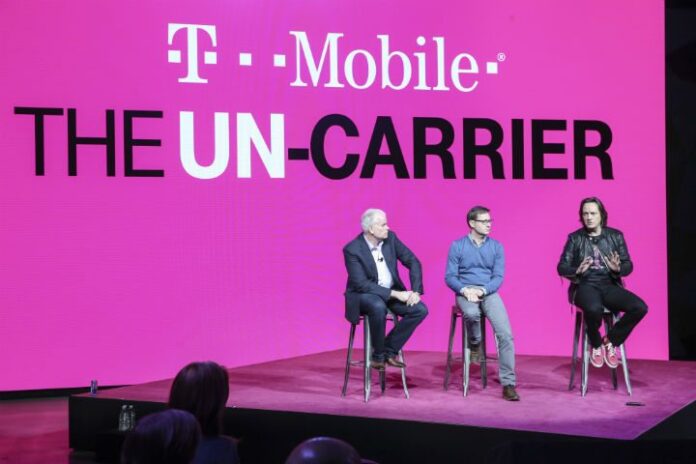T-Mobile Advanced Messaging service taps IP, counters OTT moves
T-Mobile US unveiled a new messaging platform that takes advantage of rich communication services to provide users with enhanced features similar to those offered by over-the-top players, but with the full support of the mobile operator.
In a blog post, T-Mobile US CTO Neville Ray said the T-Mobile Advanced Messaging service includes one-on-one and group messaging that is conducted in “near” real-time; the ability to see when others are typing, when a message is delivered and read; the ability to share high-resolution photos and videos up to 10 megabytes in size; and works “across all devices, makers and operating systems – and wireless operators.”
The service is being embedded into devices, negating the need to download an external application. The platform is initially being rolled out on the Samsung Galaxy Grand Prime smartphone, with T-Mobile US stating plans to embed it into the Galaxy S5 and S6 devices with a software update. Ray added that the carrier plans to embed the service in “nearly a dozen more” devices this year, and expects “it will be a standard feature on new smartphones sold.”
From a technology perspective, the move taps into T-Mobile US’ LTE network, which is based on an all-IP infrastructure that has powered Web-based instant messaging services. However, most of these current IM platforms are operating system or platform dependent. Skype messenger only works between devices using the Skype application, while the full feature list of Apple’s iMessage service only works on Apple’s iOS.
“Want to send a big video file? Want real-time chat or to see message receipts? You’ve likely had to hunt down proprietary messaging apps and recruit family and friends to get on board with them,” Ray explained.
For now, T-Mobile US is not mentioning support for Apple devices, though many in the industry have noted increased conversations with Apple in regards to adopting the RCS standard for messaging. Apple has shown growing support for such moves as seen by its inclusion of voice over LTE and voice over Wi-Fi in its latest iPhone 6 launch.
T-Mobile US has been the most aggressive domestic operator in terms of working with RCS, having inherited work done by MetroPCS, which was the first domestic operator to launch an RCS-powered messaging service in 2012. RCS has seen greater acceptance among mobile operators in Europe, which has tapped into the GSMA’s Joyn initiative. Analysts have been predicting stronger uptake of RCS for some time, though timing has been questionable.
For more on RCS, please check out the RCR Wireless News Feature Report: “WebRTC, VoLTE, RCS set to reshape carrier offerings in battle with OTT” on the RCRWireless.com website.
Bored? Why not follow me on Twitter

